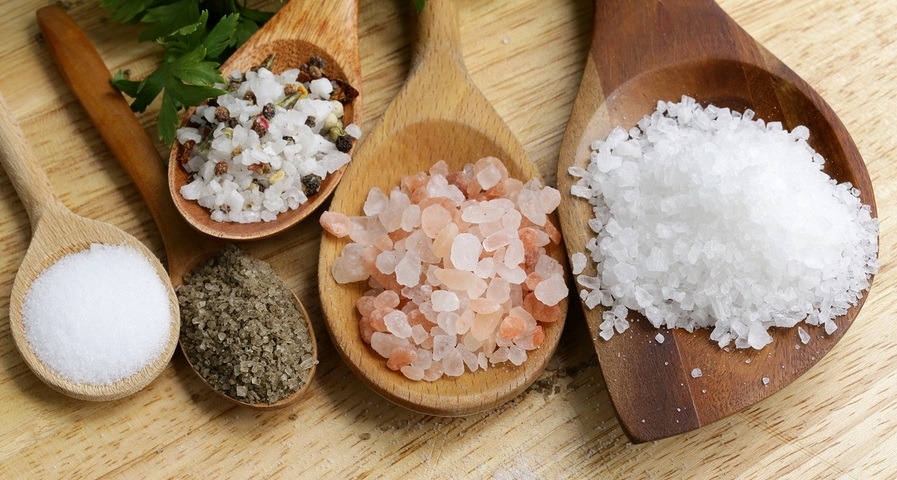News regarding traditional wisdom and native diets regarding nutrition.
Coffee Benefits May Outweigh Health Risks for Many
Coffee's affect on general health has been considered mostly negative for decades. But recent years have seen more reports and studies pointing to beneficial health effects from consuming coffee on a regular basis. Despite a recent epidemiological study that alluded to longer life without dangerous diseases among those who drank five or more cups daily, moderation and understanding one's own physiological reaction tolerance is basic for managing coffee's health benefits beyond risks. Some cannot manage even one cup of coffee without getting too fidgety to function. Others have a threshold of time for coffee that can't be broken if they want to get a good night's sleep. Another aspect to consider is the type of coffee consumed, how it's brewed, and what is added to the final brew.
Government and Corporate Interests Censor Free Speech on Nutrition
What are the supporters of the government’s “US Dietary Guidelines for Americans” afraid of? Last week, investigative journalist and author Nina Teicholz was disinvited from participating in a panel discussion at the Consumer Federation of America’s National Food Policy Conference. Other panelists reportedly said that they would not participate with her, and got the organizers of the conference to rescind Teicholz’s invitation. Why did this happen? A few background details are necessary to explain why this episode typifies how Big Food works in sneaky ways to silence dissent from the established orthodoxy.
Studies Show Neuro-Protective Effects of Real Maple Syrup
Over the past several decades of unsustainable agricultural practices, farmland topsoil has lost much of its organic mineral content. There are a few food items from crops that do not depend on topsoil for its nutrition. Among them is maple syrup. The large more commonly used maple tree varieties and even occasional birch trees tapped for their saps have roots that extend far below the topsoil level into layers of relatively pristine and less adulterated deep soil. It's there that maple syrup gets its high mineral content. Lab studies have aroused interest in maple syrup's health benefits. Current research has discovered more micronutrients and minerals in real maple syrup than previously considered, with potential positive health effects and even dementia prevention.
The Much Maligned Potato is Actually Very Healthy
What would motivate a relatively healthy man to undergo a 60 day diet of potatoes only? In 2010, Chris Voight began his successful 60 day potato fast to prove the health merits of potatoes. His inspiration was ignited by the federal WIC (Women, Infants and Children) low-income assistance program's decision to remove potatoes from the list of vegetables that were being provided. Due to his losing weight and having improved health markers from blood testing, his experience went viral at that time. He did this on a Spartan variety of 20 potatoes or less daily, cooked differently with healthy oils and seasoned lightly but never smothered with butter or sour cream or bacon bits. Chris' 60 day potato diet was done without supplements, yet his health profile after the 60 days was amazing. As a result of Chris' experiment with the 60 day potato only diet, a handful of other individuals followed his lead with somewhat shorter potato only diets, usually around 30 days, also with amazingly health boosting weight loss results.
Could Eating Saturated Fats Save 1 Million Lives per Year?
Saturated fats: Increase your LDL levels, but they increase the large fluffy particles that are not associated with an increased risk of heart disease, Increase your HDL levels. This more than compensates for any increase in LDL. Do NOT cause heart disease as made clear in all the above-referenced studies. Do not damage as easily as other fats because they do not have any double bonds that can be damaged through oxidation. Serve to fuel mitochondria and produce far less damaging free radicals than carbs.
Study: Consuming Unprocessed High-fat Cow’s Milk Protects Against Asthma
Could the consumption of processed dairy products be a leading cause of childhood asthma? That is a question researchers in Europe recently looked at, and their results were just published in The Journal of Allergy and Clinical Immunology. Significant reduction of risk for developing childhood-onset asthma is related to continuous consumption of high-fat unprocessed cow's milk, according to these European researchers. The longitudinal study looked at 1133 children from birth to age 6 years living in rural areas of 5 European countries: Austria, Finland, Germany, Switzerland, and France. The study was able to demonstrate that "continuous consumption of unprocessed farm milk contributes to protection from childhood-onset asthma." And the good news is that one does NOT have to live on a farm to enjoy these benefits. Drinking the high-fat unprocessed farm milk alone was beneficial.
Coca-Cola-funded Study: “Diet Coke Is Healthier than Water!”
“Diet Coke Is Healthier than Water!” This is according to a bizarre new Coca-Cola-funded study. A new obesity study led by Prof. Peter Rogers, PhD, of the University of Bristol, arrives at the following conclusion: “Overall, the balance of evidence indicates that use of [low-energy sweeteners] in place of sugar, in children and adults, leads to reduced [energy intake]and [body weight], and possibly also when compared with water.” Translation: diet soda is better for controlling your weight than water! Research not funded by beverage companies has found that artificial sweeteners contribute to diabetes and that diet sodas are linked to increased risk of stroke.
Beyond Soup: Six Ways to Eat More Nutrient-Dense Bone Broth
Soup and stews have been a traditional food for many societies, and for good reason. Not only does that pot stretch precious ingredients, it also makes use of one of the most nutritious, healing foods available – bone broth. Bone broth is having a resurgence in popularity in recent years. The humble simmering of meat and bones has become all the rage in some circles, with broth shops opening up next to coffee shops in large cities. This ingredient has a long list of benefits for everything from skin health to gut health to joint pain relief and more. There is a reason that Mothers and Grandmothers handed out bowls of broth and soup to their ailing loved ones in times past. They knew it was some of the most easily assimilated nourishment they could offer. But eating a cup of broth or bowl of soup at every meal - or even once per day - can be a challenge for some. Though this may be the simplest way to ingest broth, it isn’t everyone’s favorite and can lead to burnout very quickly. To avoid broth burnout and keep things interesting and delicious, here are some ideas for using broth in your daily meals.
4 Ways to Add Flavor to Your Butter
One very easy way to incorporate a healthy and traditional source of fat into your everyday diet is to consume cultured butter made from the milk of grass-fed pastured cows. Butter is so versatile and brings out the best of the flavors of whatever you add it to: enjoyed on grilled meats, steamed vegetables, baked seafood, homemade freshly baked bread made with freshly ground flour, various breakfast foods and even stirred into your morning coffee. With all of those uses for butter, wouldn't you like to know that there are just as many options for handcrafting flavors of butter to suit each and every occasion? In the following 4 recipes we'll show you how easy it is to get started creating your very own small batches of compound butters, both sweet and savory varieties.
Salt Restriction Increases Heart Disease Deaths and Hospitalizations
Since graduating from medical school in 1989, I have come to the conclusion that much of what I was taught was wrong. In fact, at my medical school graduation, the dean said, “Fifty percent of what we just taught you was wrong, your job is to figure out which part was correct and which was incorrect.” When medical students come to my office, I always encourage them to question everything I tell them and, furthermore, to question what they have been taught. I was taught in medical school that a lowered salt diet was a healthy diet—for everyone. Furthermore, it was drilled into my head that anyone with heart disease, particularly heart failure, should limit salt in his/her diet. In fact, it is still standard-of-care for a cardiologist to tell his/her heart patient to limit salt in their diet. This is especially true when the patient is suffering from heart failure. So, does limiting salt in the diet of a patient with heart failure result in a better outcome? Not according to a recent study.













